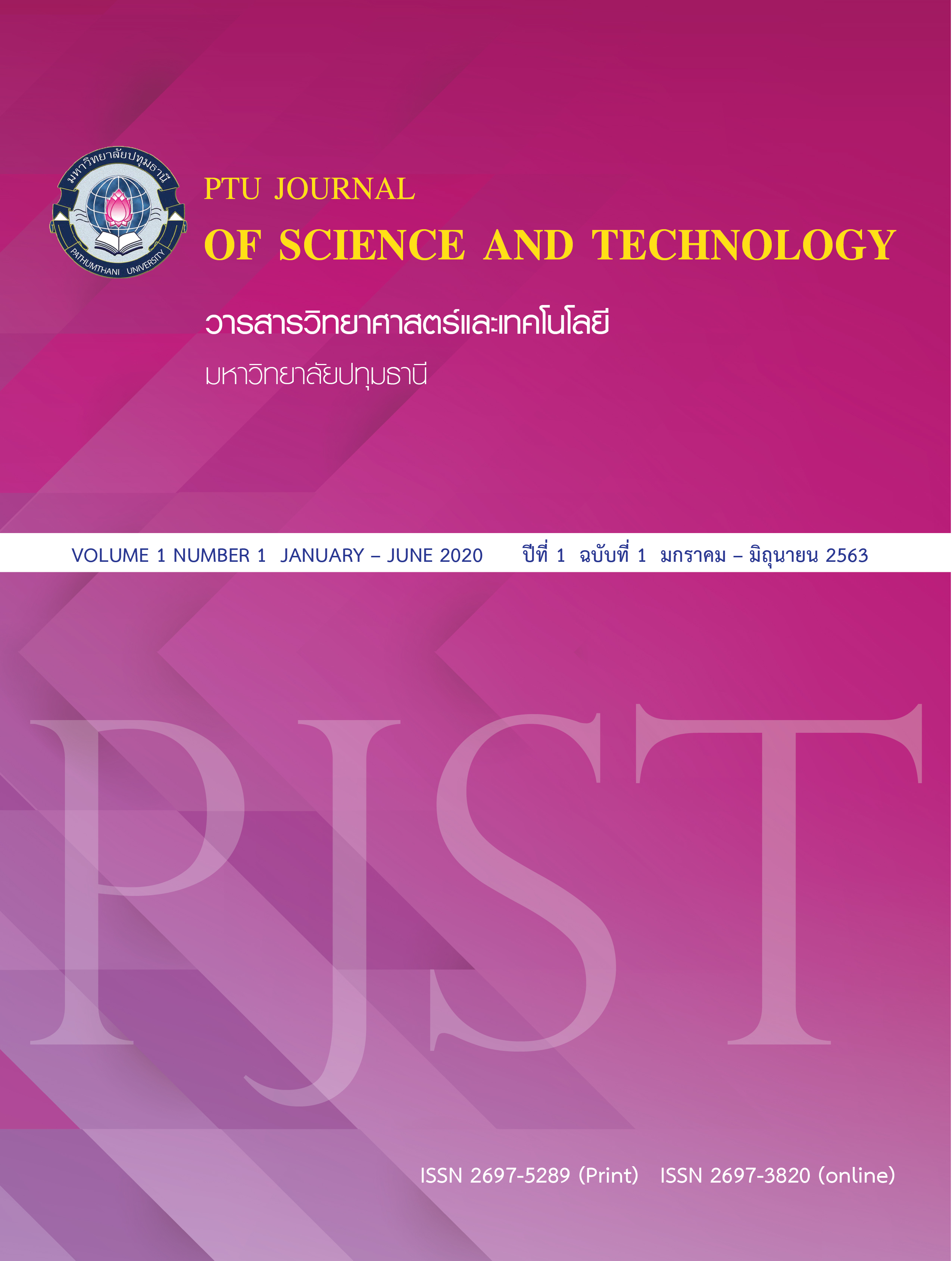Effect of Aeration on Bio drying of Municipal Soid Wastes for Utilization as Refuse Derived fuel (RDF)
Main Article Content
บทคัดย่อ
This research aims at transforming municipal solid wastes (MSW) into refuse derived fuel (RDF) by bio-drying. The process utilizes heat from microbial activities to remove moisture from MSW. Lysimeter experiments were performed under different aeration modes, continuous and intermittent at the same amount of air supply. Lysimeter experiments were conducted at different aeration rates of 0.1, 0.2, 0.5, 1.0 and 2.25 L/min and compared to that employing natural aeration. Different aeration modes, i.e. continuous aeration, intermittent aeration of 1 hour on and 1 hour off, intermittent aeration of 3 hour on and 3 hour off were compared over 14 day period. The experimental results revealed that 0.2 and 0.5 L /min aeration rates could promote bio-drying process resulting in homogeneous reduction of moisture content along the height of solid wastes. Meanwhile, intermittent aeration yielded higher moisture content in the upper part than the bottom part of the lysimeter. This was due to the condensation and accumulation of evaporated water at the upper part when the aeration was stopped resulting in non-uniformed reduction of moisture. Using bio-drying process, the results showed that moisture content of wastes could reduce by 40.6-94.5% yielding remaining moisture of 14.77-37.74% and 4.35-26.47% in treated wastes at aeration rate of 0.2 and 0.5 L /min., respectively after 14 days. The lower heating value (LHV) of treated wastes was 4384.83-6418.50 kcal/kg and the emissions of greenhouse gases (methane, carbon dioxide, nitrous oxide) were lowered at the aeration rate of 0.2 L /min when compared those at the aeration rate of 0.5 L /min.
Article Details
ความคิดเห็นและข้อเสนอแนะใดๆ ที่นำเสนอในบทความเป็นของผู้เขียนแต่เพียงผู้เดียว โดยบรรณาธิการ กองบรรณาธิการ และคณะกรรมการวารสารวิทยาศาสตร์และเทคโนโลยี มหาวิทยาลัยปทุมธานี ไม่ได้มีส่วนเกี่ยวข้องแต่อย่างใด มหาวิทยาลัย บรรณาธิการ และกองบรรณาธิการจะไม่รับผิดชอบต่อข้อผิดพลาดหรือผลที่เกิดจากการใช้ข้อมูลที่ปรากฏในวารสารฉบับนี้
เอกสารอ้างอิง
2. He, P., L. Zhao, W. Zheng, D. Wu, L. Shao. (2013). Energy balance of a biodrying process for organic wastes of high moisture content: A review, Drying Technology, 31; 132-145.
3. Nithikul, J., O.P. Karthikeyan, C. Visvanathan. (2011). Reject management from a mechanical biological treatment


